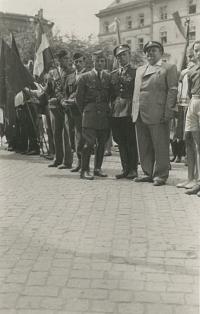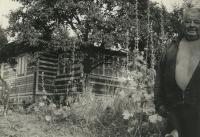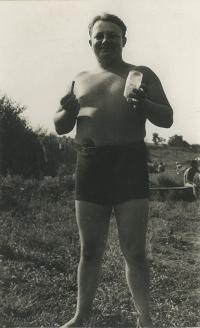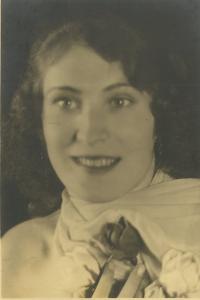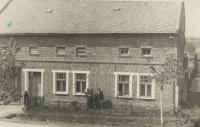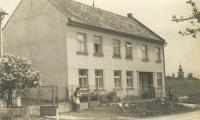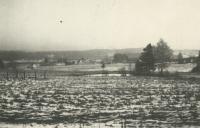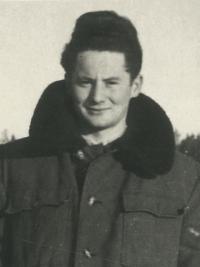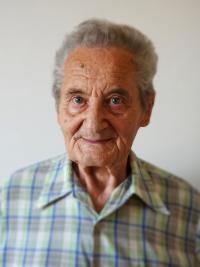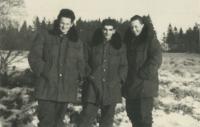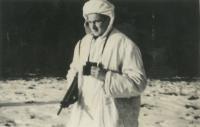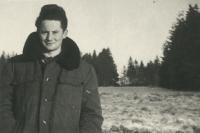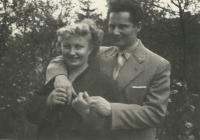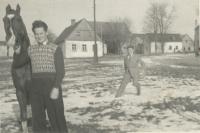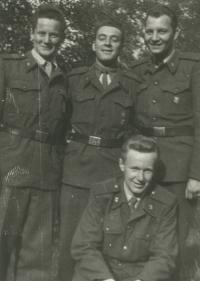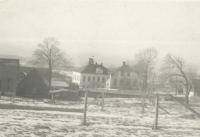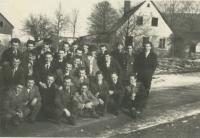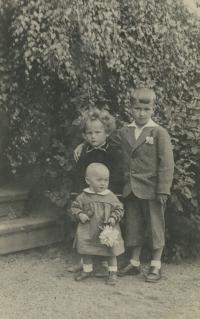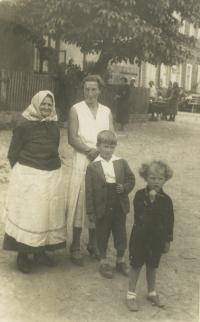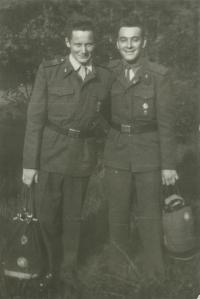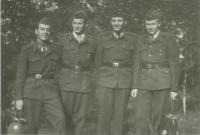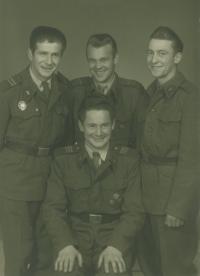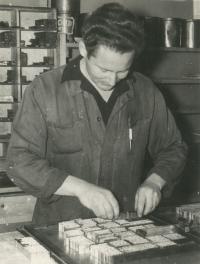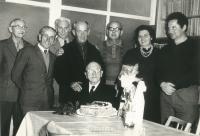The worst thing is herd mentality

Stáhnout obrázek
Rostislav Čapek was born on April 18, 1931 in Tršice. Due to the economic crisis, the Čapek family was going through a difficult time before World War Two. Rostislav experienced several terrifying moments during the war. He witnessed an execution of partisans in Doloplazy as well as many other dramatic events in Tršice. At the end of the war, on April 18, 1945, cossacks led by the Gestapo arrested 23 men in nearby Zákřov and two days later they killed nineteen of them. One of the four men who were released was Rostislav‘s father-in-law Bedřich Hodulík. During the investigation he was accused of being an informer and in 1952 he was sentenced to life sentence. Rostislav and his wife strove to clear his name for their entire lives and they still believe that he had been sentenced in a show court trial. Rostislav learnt the typographer‘s trade after the war and he worked in the IGO printing works in Olomouc. He volunteered to do work in coal mines, where he worked 145 shifts. In 1952 he started his basic military service in the 5th brigade of the Border Guard Cheb, in the 4th troop Újezd, where he guarded the border with West Germany. When he returned home, he continued working in the IGO printing works. In 1956 he became a member of the Communist Party. After the invasion of the Warsaw Pact armies in 1968 he publicly threw away his member‘s card and he was expelled from the Party. In the late 1960s they built a cooperative house near the printing works together with his colleagues, and he still lives there.
